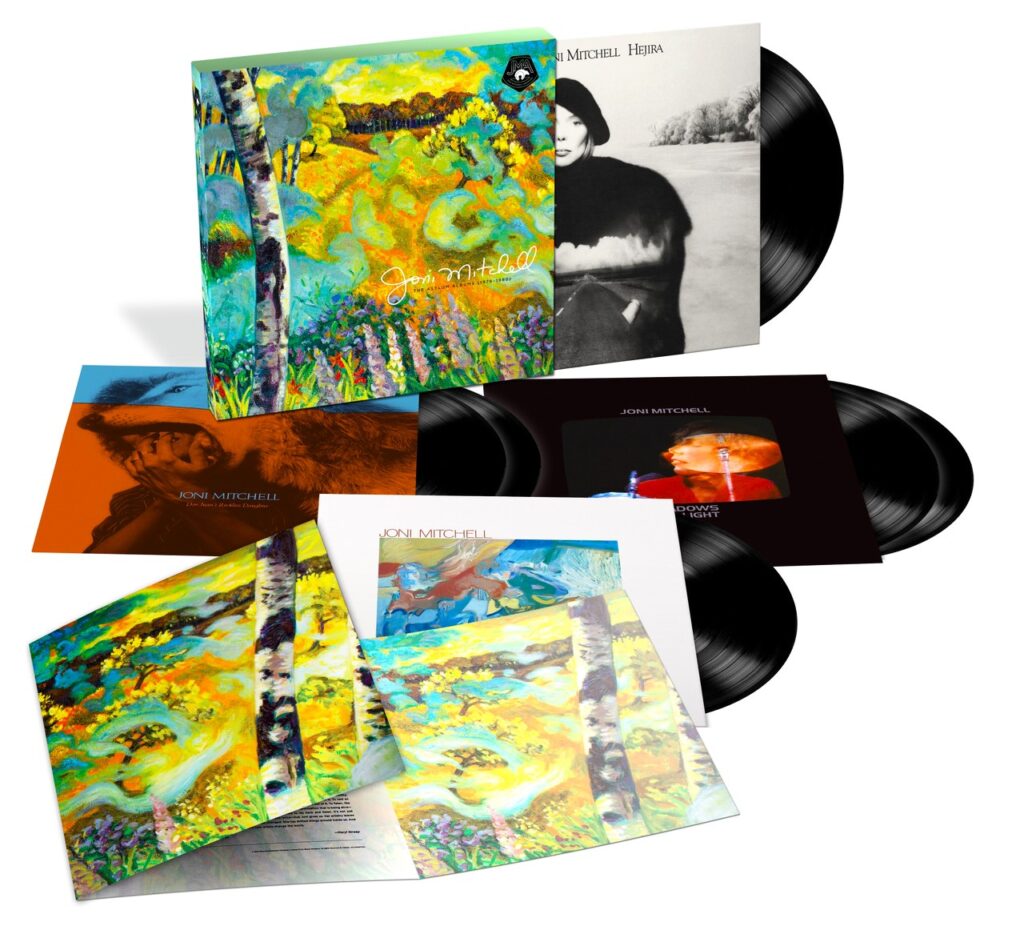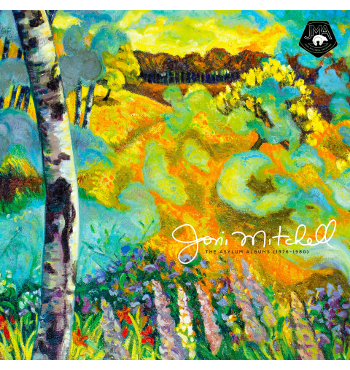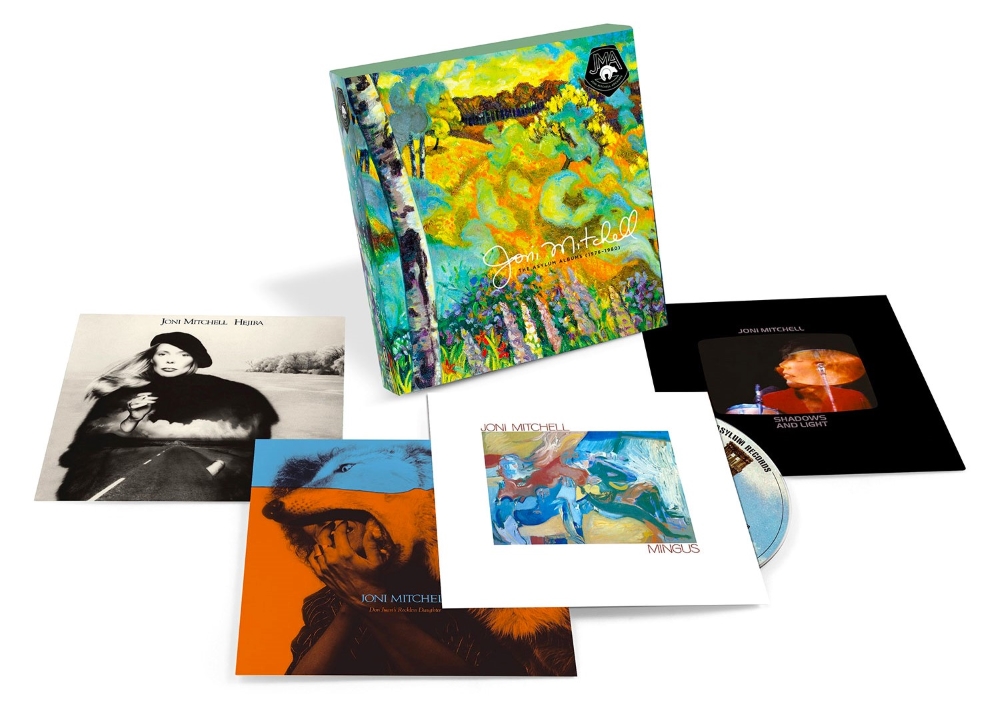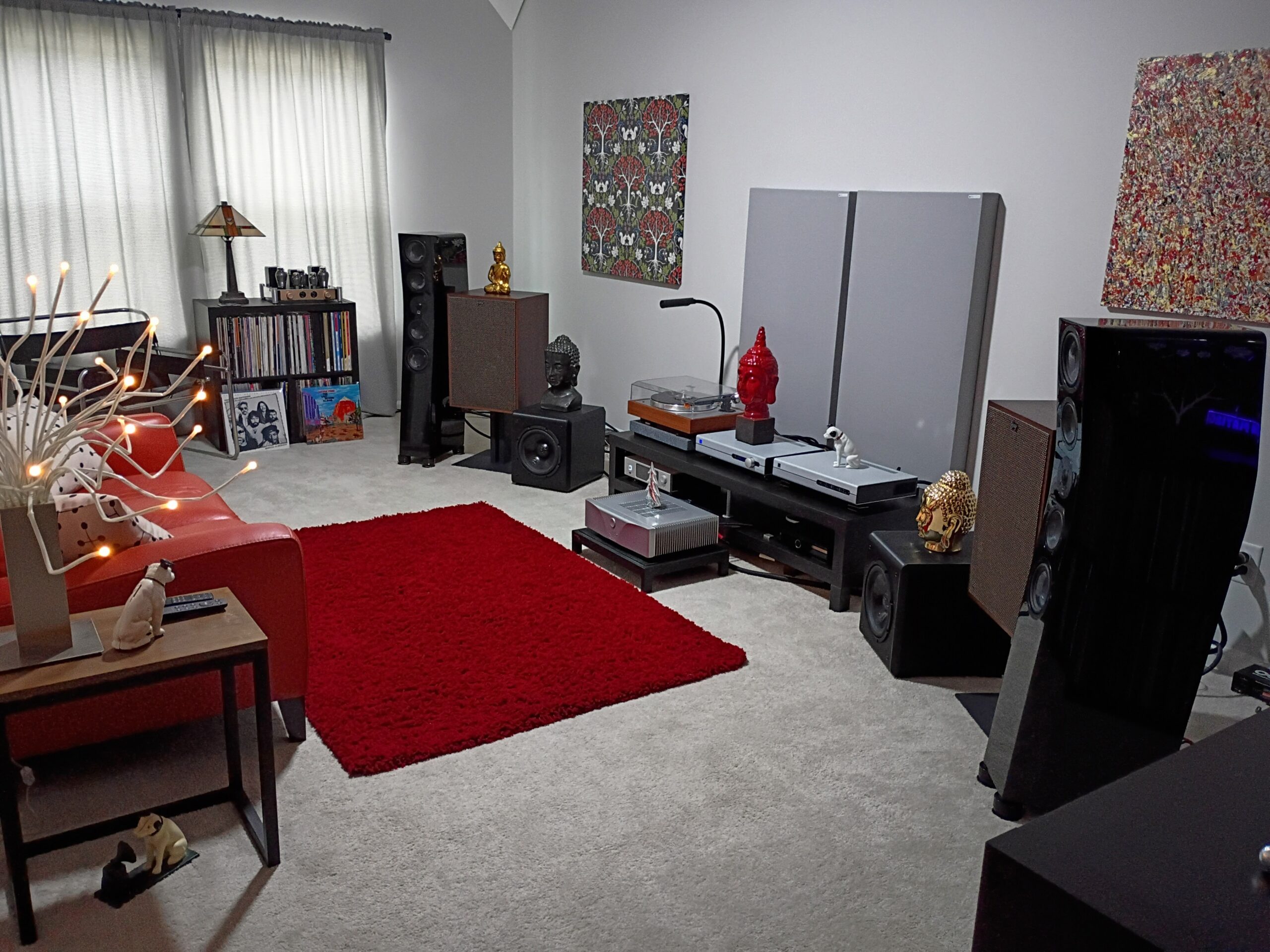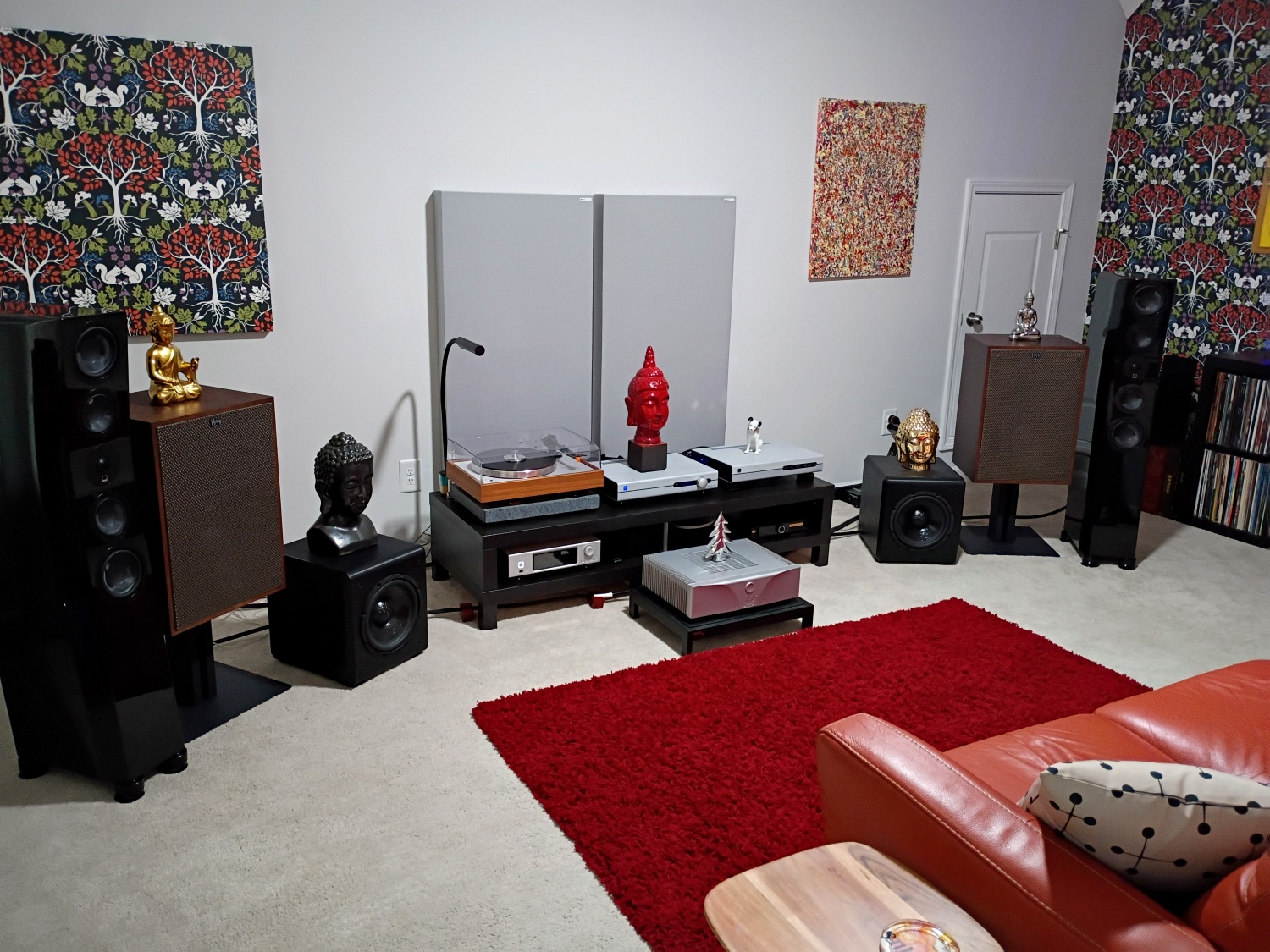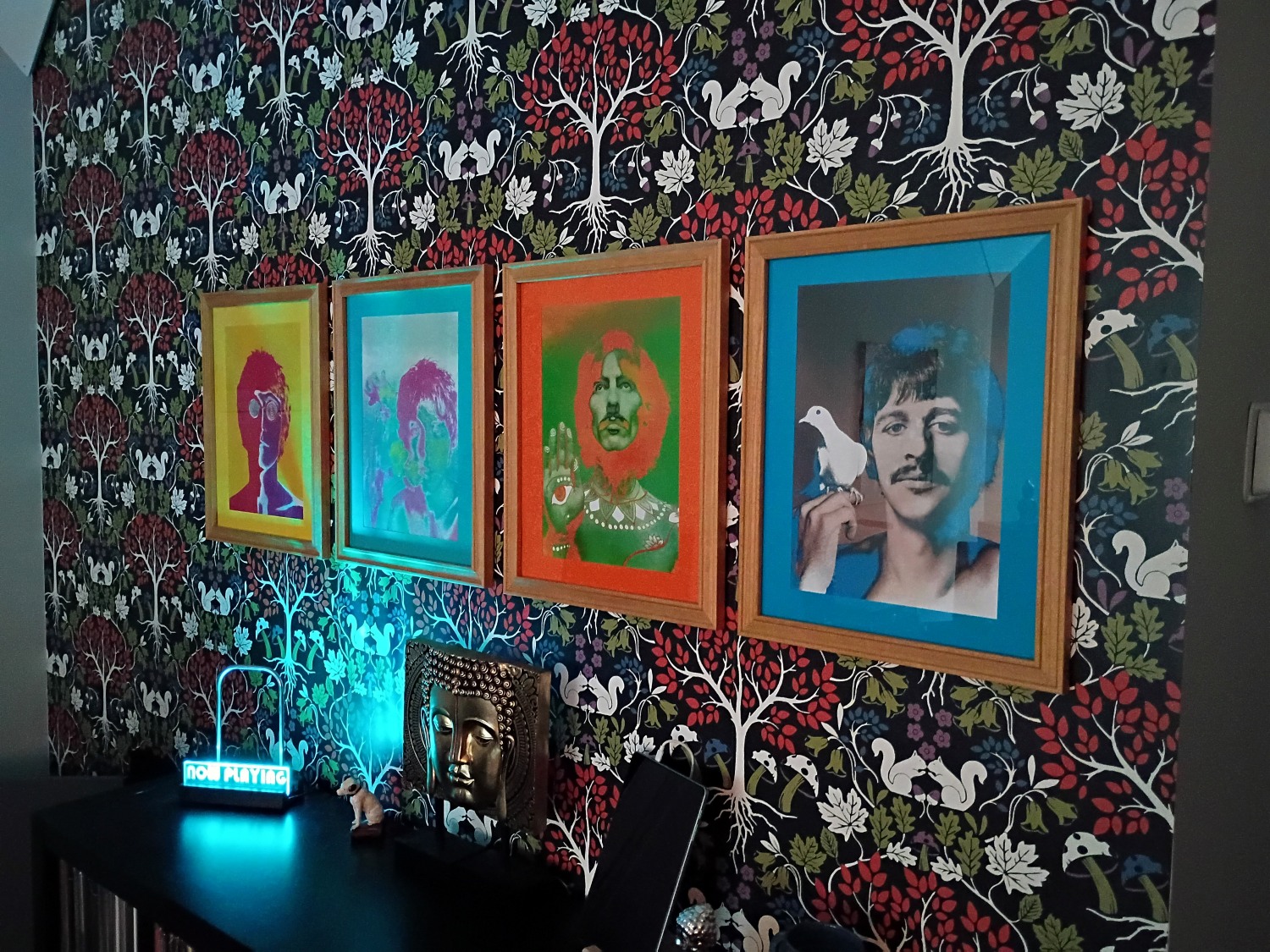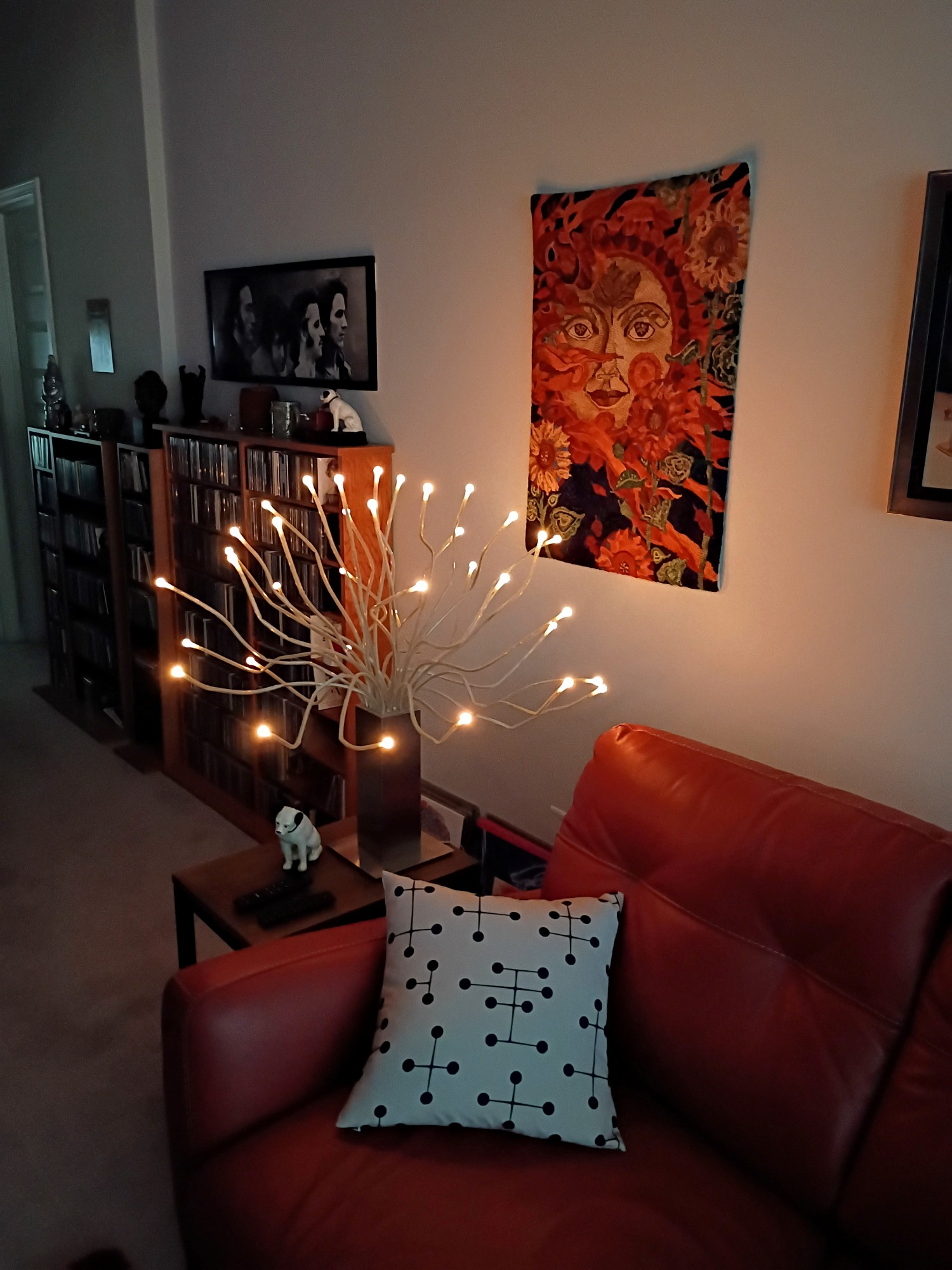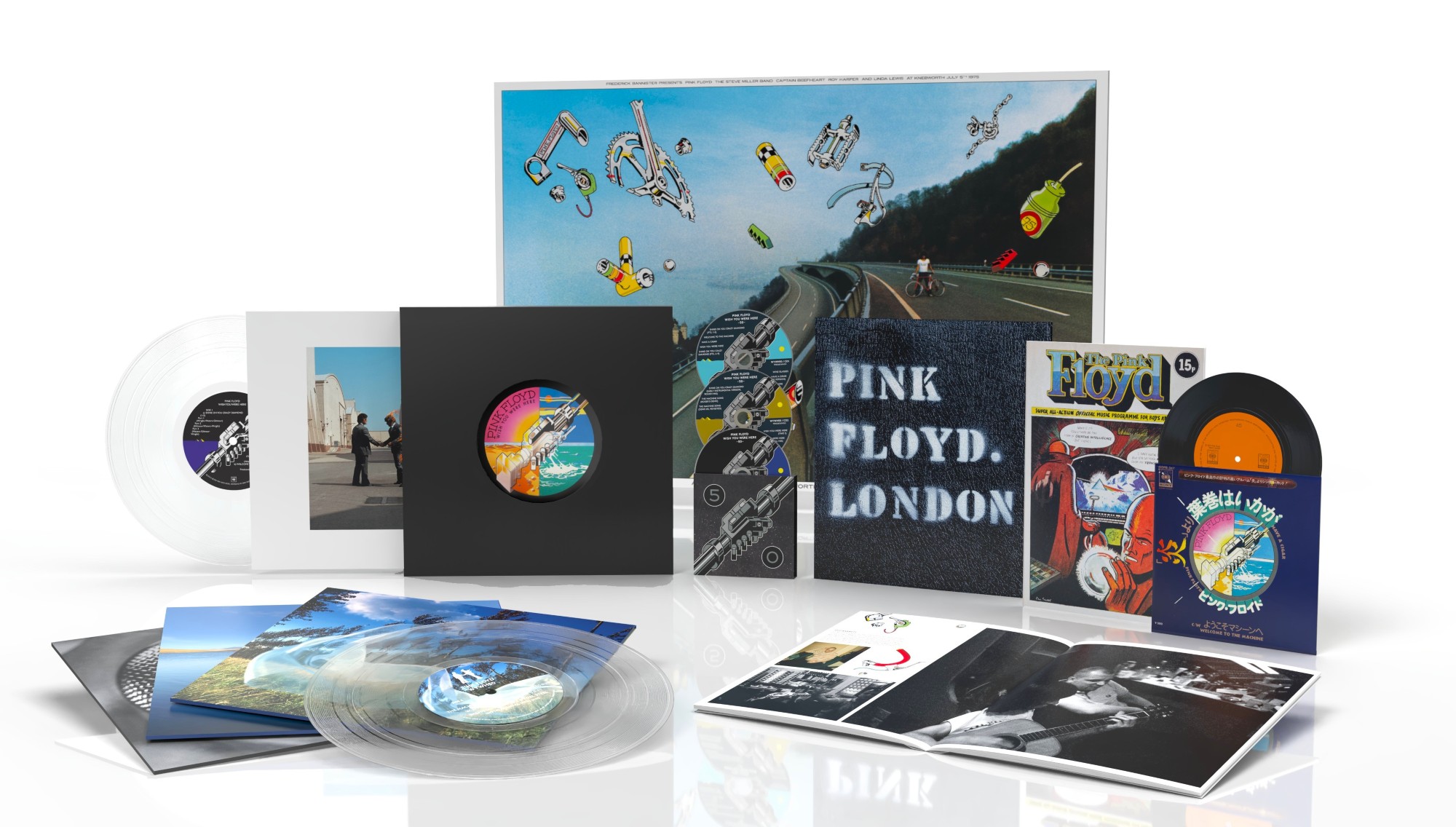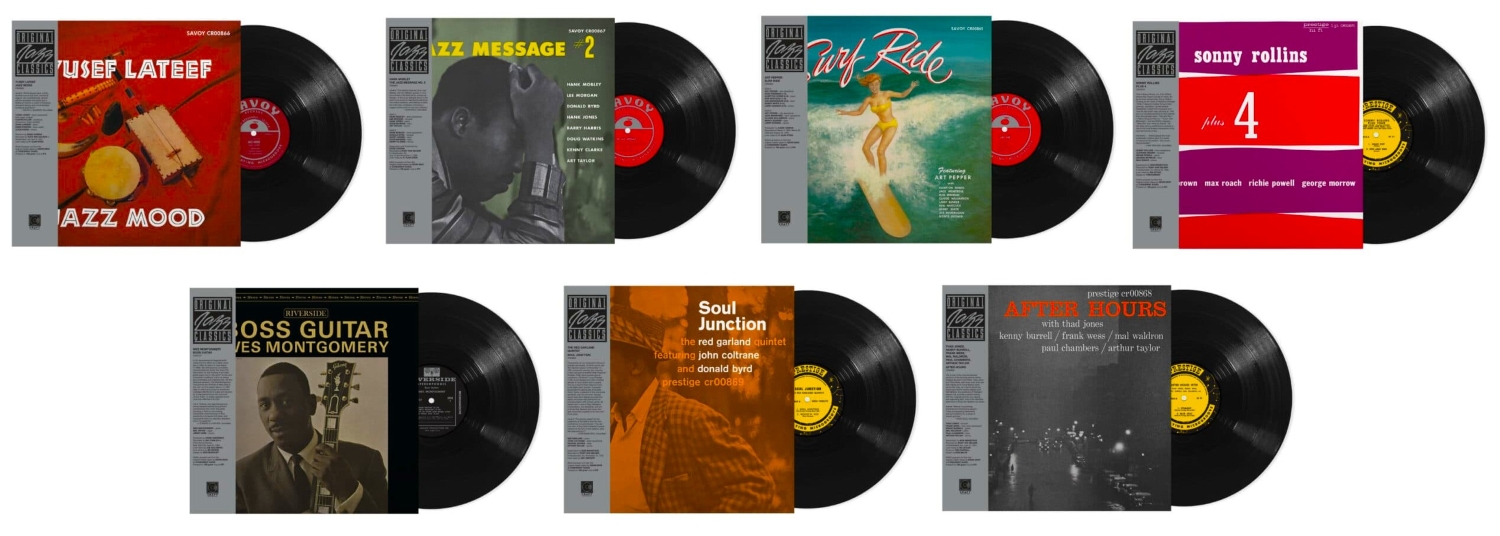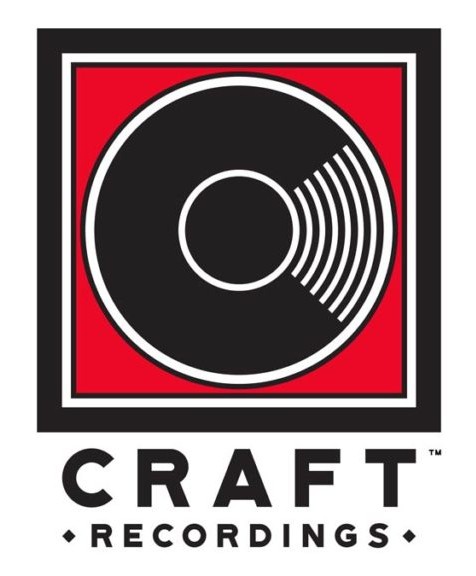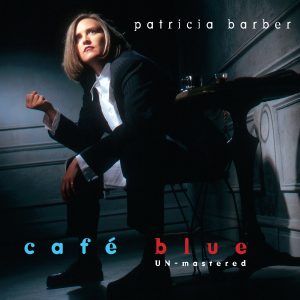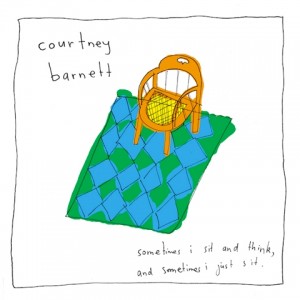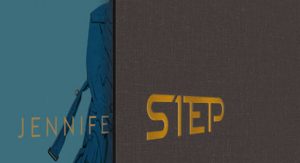Rhino Entertainment continues the superb Joni Mitchell Archives Series with their latest installment, The Asylum Albums (1976-1980), which presents newly remastered versions of Joni Mitchell's final four albums for David Geffen's Asylum Records. Including the studio recordings Hejira (1976), the double album Don Juan's Reckless Daughter (1977), and Mingus (1979), along with Joni's double live album, Shadows and Light (1980), all of which found her exploring a broader range of jazz influences in her music. Following the pattern of Rhino's previous releases in the series, The Asylum Albums (1976-1980) is being offered in choices of a 5-CD set or a deluxe 6-LP box set that's strictly limited to 5000 copies. 24-bit/192kHz high resolution digital files are also being offered for download and streaming on most major services. While The Asylum Albums (1976-1980) gives us Joni's official perspective on this era of her career, it also serves as a precursor for the upcoming Joni Mitchell Archives, Vol. 4, which will complete the picture with unreleased alternate, studio, and live tracks from the period.
For my review of The Asylum Albums (1976-1980), I received both the deluxe 6-LP set and 16-bit/48kHz digital files for the 5-CD set. The LP set arrived encased in a beautiful hardboard box with tip-on style artwork that features a truncated version of another of Joni Mitchell's beautiful original paintings. The box is heavily varnished with a distinctive strike-through effect, with Joni Mitchell's signature logo type and the Archives logo in high-gloss varnish; Joni's original painting is coated with satin varnish. Joni's artwork wraps around to the back of the box, where a high-gloss metallic pale green panel features credits for the box set and the tracklist for the individual albums, which are represented by satin varnished inset images of each. Gatefold jackets for each of the four albums are inserted in the box; the cover art for each is crisp and remarkably close in appearance to that of the original LPs I had on hand. The cover for Shadows and Light features a cool deboss effect with satin varnish strike-through on the images. While Don Juan's Reckless Daughter features new cover artwork that replaces the somewhat controversial blackface artwork of the original issue; it's very different from the original, but it's graphically striking, and works well for the new reissue. The box also includes a satin-varnished, tri-panel fold-out insert that features Joni's full original artwork spread across the panels of one side. The opposite side features an earnest and thought-provoking essay penned by actress Meryl Streep that discusses Joni and her music, with particular emphasis on the four albums featured in this box.
Each of the gatefold albums, with the exception of Mingus, included reproductions of the original printed paper inner sleeves (Mingus arrived already inserted into a white, rice-paper lined sleeve). While the printed sleeves increase the authenticity of the package, as is my usual practice, I placed rice paper liners inside those to add a measure of protection for these gorgeous LPs from scratches, paper dust, and static. All four albums were remastered by Bernie Grundman at Bernie Grundman Mastering in Hollywood, on all-analog equipment, using the original flat analog master tapes. Bernie also cut the lacquers that were used to press the six 180 gram LPs at Optimal in Germany. While I only received the digital files for the CD version, the actual CD box duplicates the contents of the larger LP box in a scaled-down version, including the cool insert. You can order a copy of The Asylum Albums (1976-1980) on LP or CD from Rhino's web store HERE, and they can also be found at a multitude of online retailers, or at your local independent record store.
Joni Mitchell, The Asylum Albums (1976-1980). (6) 180 gram LPs, $149.98 MSRP, (5) CDs, $49.98 MSRP
The Asylum Albums (1976-1980) completes Rhino's remastered survey of Joni Mitchell's catalog albums on the Asylum label; they spanned the decade of the Seventies, leading into the outset of the Eighties. By the time she'd reached the midpoint of that decade, her songwriting had become much less confessional in nature. And with her continuing embrace of jazz idioms, she almost completely abandoned the kind of conventional song structure that was the hallmark of her more typical albums from that earlier period.
1976's Hejira was Joni's eighth studio album, and was heavily influenced by several extended road trips that Mitchell had recently taken; many of the album's sprawling songs reflect her experiences from the road. The songs are more lyrically dense than on previous albums, and her increasing fascination with jazz can be seen by her choice of studio musicians on the album, including guitarist Larry Carlton and especially bassist Jaco Pastorius. Hejira is probably her last truly confessional album, where the songs essentially reflect what was going through her head at the time, recounted in her classic narrative style where she divulges her innermost thoughts about everything happening around her. A longtime favorite song of mine is the side two opener, "Song For Sharon," where she recounts to her friend "Sharon, I left my man at a North Dakota junction, and I came to the Big Apple to face the dream's malfunction; Love's a repetitious danger, you'd think I'd be accustomed to; well, I do accept the changes, at least better than I used to do." This is perhaps one of her most concise lyrical descriptions of one of her many breakups, and makes it perfectly clear that Joni never had any problem walking away from a relationship that wasn't working for her! Musically, Hejira is easily one of my favorite albums in Mitchell's entire catalog.
Mitchell's ninth studio album, 1977's Don Juan's Reckless Daughter, is much more experimental in nature than any of her previous albums, and showed her deepening assimilation of jazz idioms. As she neared the end of her contract with Asylum Records, she felt a greater degree of creative freedom to explore music that stretched beyond the boundaries of her previous work. Many fans—at the time, at least—saw this stylistic shift as her abandonment of the music that they'd otherwise found great comfort in, and had a difficult time fully embracing it. The critics weren't especially jazzed about it either (pun intended). Don Juan's Reckless Daughter featured an even larger contingent of jazz musicians, including many of the musicians from the group Weather Report, including Wayne Shorter, Jaco Pastorius, Alex Acuna, and Manolo Badrena. The songs are significantly more diverse than anything on Hejira; the opening track, "Overture/Cotton Avenue" features six simultaneously multitracked guitars with various tunings, and the effect is stunning, to say the least! Other standout tracks include "Jericho" and "Paprika Plains," which both feature extensive soprano sax work from Wayne Shorter. "Paprika Plains" is a sprawling tune that spans an entire album side, and begins as more of an extended piano piece from Mitchell before evolving into a fully-orchestrated concerto of sorts. Musically, Don Juan's Reckless Daughter is impressively beautiful, and in retrospect, it's a much more fully-formed statement than the critics or fans gave it credit for at the time of its release.
1979's Mingus was Joni Mitchell's tenth studio album, and represented her most extreme venture into full-on jazz at the time. Which found her writing new songs based on the music of Charles Mingus—whom she'd developed a particular affinity for—and new lyrics for several of his classic songs. Mingus was not in particularly good health at the time, and the sessions for the album traveled down a couple of different paths before eventually emerging in its final form following his death in early 1979. The original lineup of musicians included the likes of Eddie Gomez and Stanley Clark on bass, Phil Woods and Gerry Mulligan on saxes, guitarist John McLaughlin, drummer Tony Williams, and Jan Hammer on keyboards. Any tapes that feature those artists have either been lost or simply never released—except as bootleg recordings—and they'd definitely present a very interesting alternative version of Mingus we may never hear. The final album tracks featured the core of Jaco Pastorius, Wayne Shorter, Herbie Hancock, Peter Erskine on drums, and Don Alias and Emil Richards on percussion. It's obvious that Charles Mingus' health precluded any possibility of his physical participation in the sessions, but his imprint is everywhere, especially in the several "rap" interludes where his and Mitchell's voices intermingle on short snippets. While the songs and playing on Mingus are superb, it's still perhaps not as fully-realized as one might have hoped, especially considering the cast of luminaries that were involved at various points along the way.
The 1980 album Shadows And Light was Joni Mitchell's second live recording, her final album for Asylum Records, and again featured a cast of prominent jazz musicians. Including Pat Metheny on guitar, Lyle Mays on piano and keyboards, Jaco Pastorius on fretless bass, Don Alias on drums and percussion, and Michael Brecker on saxophones. The soul vocal group the Persuasions offer backing vocals on a few tracks, including a lighthearted version of the classic doo-wop "Why Do Fools Fall In Love?" and also on "Shadows And Light." The performances eschew most of Mitchell's classic songs from the Reprise period, focusing instead on selections mostly from the albums Hissing of Summer Lawns, Hejira, Don Juan's Reckless Daughter, and Mingus. The only exceptions are an up-tempo performance of her big hit from Court and Spark, "Free Man in Paris," and the album's closer, a fairly subdued though more jazzy rendition of her classic "Woodstock." Drummer Don Alias and guitarist Pat Metheny each also get lengthy solo spots; Shadows and Light is a superb live recording and an excellent document of Joni Mitchell's live performances from that era.
Listening and Evaluation
By clicking my name in the header above, you can see the individual components that occupy the two systems I use for evaluation of music from both digital and analog sources. I used the all-analog system to listen to the six LPs from The Asylum Albums (1976-1980). It features a pair of Vanguard Scout standmount compact monitor loudspeakers that run in tandem with a Caldera 10 subwoofer, and the combination has taken my enjoyment of analog playback to another level of musicality. The setup also incorporates the excellent PS Audio Stellar phono preamp, and everything is powered by my PrimaLuna EVO 300 tube integrated amplifier. Which has been upgraded with a matched quad of Sovtek 6550 power tubes and a matched pair of vintage NOS Brimar 12AU7 input tubes. Playback of the LPs was handled by my ProJect Classic EVO turntable that's mounted with an Ortofon Quintet Bronze MC cartridge. It's a perfect setup to enjoy the analog goodness of great LPs like those in this box!
Optimal's LP surfaces were flawless, exceptionally glossy, and free of any visible defects, and all the pressings were perfectly centered. These are exceptionally quiet reissues, with deathly black backgrounds and virtually nonexistent groove or surface noise, and the music emerged over my system from almost total silence. The complement of new tubes in my all-analog system presented playback that was exceptionally dynamic and musical, offering a level of startling realism in my listening room, and creating a remarkable illusion of Joni Mitchell in the soundfield before me. That's due in no small part to Bernie Grundman's new remasters, which are absolute wonders to hear, easily bettering any original LPs or later reissues I had on hand. I sat almost motionless with every play of these excellent LPs, which have been in regular rotation since their arrival, and I've been totally entranced by each listening experience! Rhino's The Asylum Albums (1976-1980) offers far and away the finest incarnation of each of these records I've ever heard on any high-end system.
After downloading the CD-quality files supplied by Rhino, I converted them all to uncompressed FLACs, retrieved the metadata, then loaded them onto my digital music server. They were all played in combination with streaming equipment from Euphony Audio, a Gustard DAC and external clock, with my PS Audio preamplifier sending the signal to a Naiu Labs Ella amplifier. A pair of Magneplanar LRS loudspeakers and dual Vanguard Caldera 10 subs provided the sound, which was absolutely superb! As with the LP version of this set, the new digital remasters are miles beyond any catalog versions I had on my music server. The sound of the CD-quality files made for a very compelling listen, with a level of realism that very nearly matched that of the new LPs! Having recently gotten one of the companion sets to this box, The Asylum Albums (1972-1975) Quadio, it was revelatory to hear the remastered 24-bit/192kHz high resolution stereo versions of the albums that were included on the four BluRay discs, which are beyond doubt the finest digital versions of Joni's first four Asylum records that exist. And despite the incredible sound of the CD-quality files, I'm jonesing to get my hands on the 24/192, high resolution digital downloads that are also available as part of this reissue campaign!
You Don't Want to Miss These Bernie Grundman Remastered LPs!
The Asylum Albums (1976-1980) finds Joni Mitchell fully embracing the jazz aesthetic that had been creeping into her songs throughout the first half of that decade. The LP box set presents this music with astonishing fidelity on perfectly remastered pressings that will very likely never be bettered. Bernie Grundman has really outdone himself on this project, and with availability limited to 5000 LP sets, I wouldn't hesitate, and trust me—you won't be disappointed! The beauty of the impressive packaging and its presentation sugarcoats this scenario, and having the album art and Joni's original artwork full-sized is really gratifying. Which for us old-school LP spinners has always been part-and-parcel with the listening experience. And for those who are more digitally oriented, the excellence of the remastered digital sound shows clearly that there's a very fine line between great digital and really great analog—and it's getting increasingly narrow. Thanks so very much to Taylor Perry at Shore Fire Media and to everyone at Rhino Entertainment for the opportunity. For Joni Mitchell fans and completists alike, The Asylum Albums (1976-1980) is not to be missed, and comes very highly recommended!
Rhino Entertainment
All images provided by Rhino and Shore Fire Media




